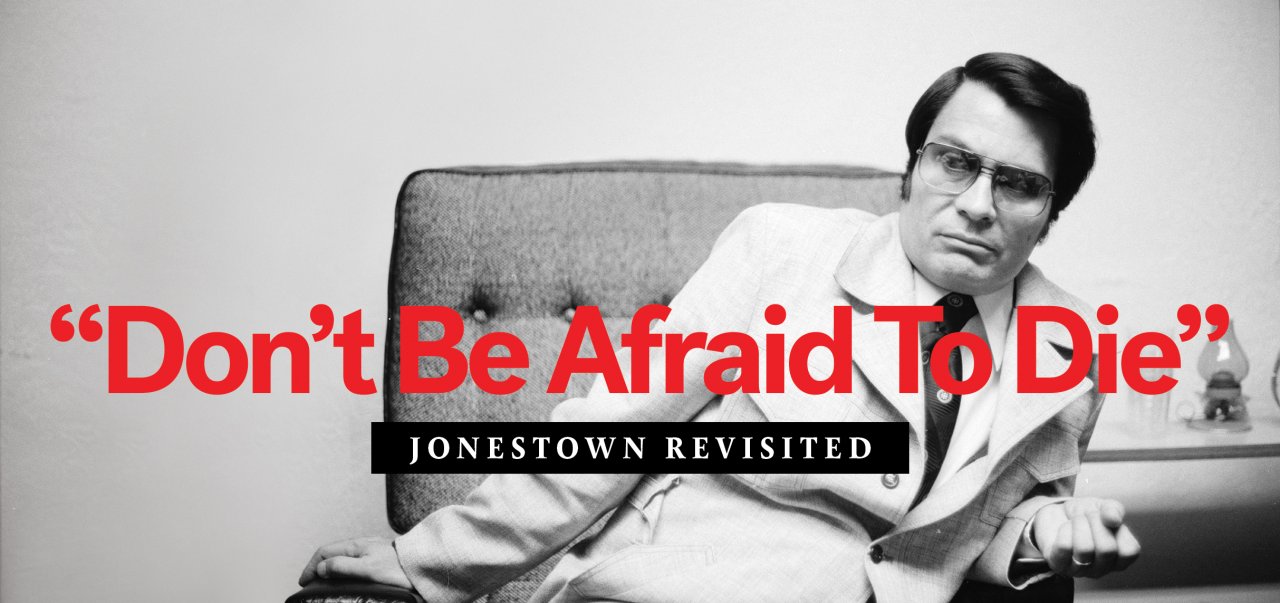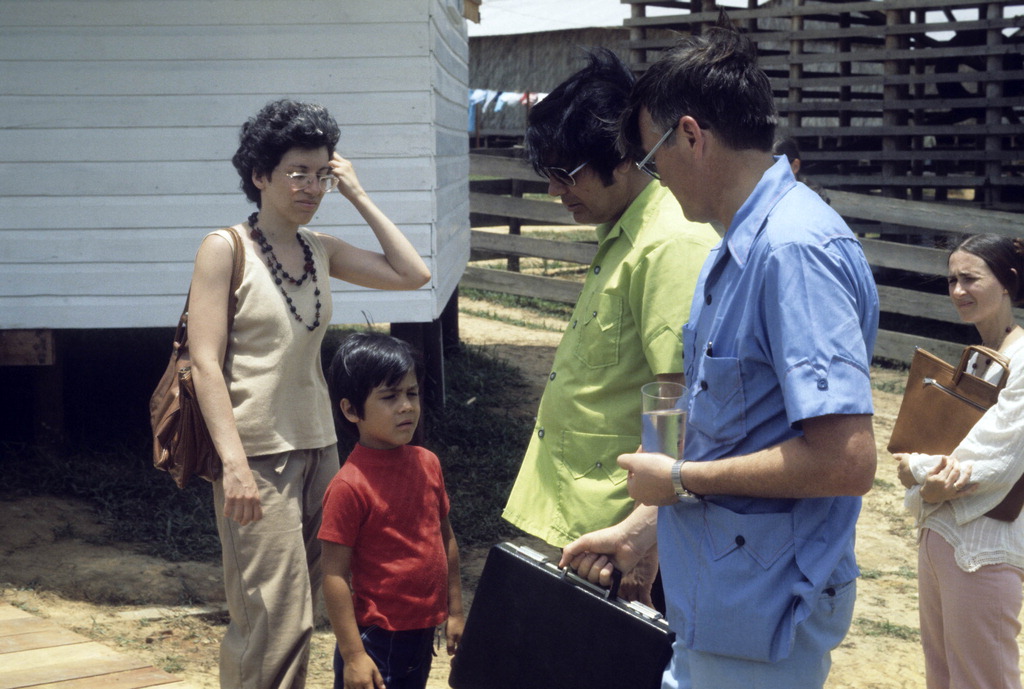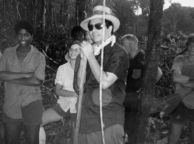
'I'm Preparing to Make a Great Sacrifice,' Warns Jones
In this series, Newsweek reconstructs the events leading to the Jonestown Massacre as it happened in 1978, day by day.
November 13, 1978: On Monday, Temple leaders issued their strongest statement yet condemning the congressman's visit:
The visit is actually a contrived "media event." It is being staged for the purpose of manufacturing adverse publicity for the Jonestown community, hopefully by provoking some sort of incident.
This sham investigation is only the latest in a long series of ploys orchestrated by the anti-Temple faction, some of whom have threatened to hire mercenaries to illegally enter Guyana and invade Jonestown...
The statement noted that Jonestown residents refused to see anyone in Congressman Ryan's party and that the settlement would be "requesting Guyana police protection in the event that attempts are made to enter the Jonestown community against their will."
As he did on a regular basis, Jones read the news over the P.A. system, pulling stories from the wires and giving them his own pessimistic spin or adding outright falsehoods. The day's headlines—real and fake—were written on blackboards in the pavilion and residents were tested on them each evening. Punishment for failing the test multiple times meant being assigned to the "Learning Crew" to do hard labor.
Audio courtesy of the Jonestown Institute
While residents worked in the fields or animal pens or scraped together meager meals in the kitchens, or taught and studied in the school tents, Jones slept in, recovering from drug- or alcohol-induced hangovers. Meanwhile, his aides played pre-recorded tapes of him talking over the loudspeakers to make residents believe he was awake. His ramblings veered from his thoughts on guerilla warfare to reading from textbooks on the structure of the United States government. Whenever his voice came over the P.A. system, residents were expected to stop talking and listen. His voice droned on in the background for much of the day, making it nearly impossible for residents to discuss their miserable situation or orchestrate those feelings into concrete actions, such as planning an escape.
One of his top lieutenants, Harriet Tropp—who grew up in New York City and had a law degree from Berkeley—had criticized Jones about the constant blare of his voice. "I have entertained the thought that you were deliberately using a known psychological technique of interrupting peoples' thought processes with specific information, so as to keep them in a kind of disjointed state — a state that makes them both more receptive to information fed to them, and less able to do concentrated, (and often treasonous) things... whatever your reasons, it is driving me nuts." But her complaint had no impact; instead Jones upped the ante, announcing residents would be tested on the content of his disjointed "lectures" as well as the news.

The biggest headlines on November 13 dealt with Vietnamese refugees, the Camp David Peace Accord, and terrorist bombings in Northern Spain by the Basque separatist group ETA.
Jones finished his reading of the news with the following words: "Stand true to socialism. It requires much sacrifice. I'm preparing to make a great sacrifice. I know what it requires."
Those ominous words were followed by his standard sign-off: "I love you, very, very much."
Julia Scheeres is an award-winning journalist and author. Her books include Jesus Land and A Thousand Lives: The Untold Story of Jonestown.


















